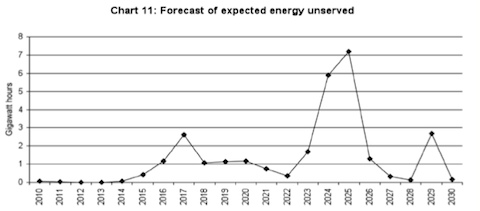Original URL: https://www.theregister.com/2012/01/16/smart_meters_no/
Stop this energy smart meter 'fiasco', UK.gov urged
Miliband's mandatory kill switches criticised
Posted in Legal, 16th January 2012 13:22 GMT
So-called 'smart meters' are under renewed attack – this time from MPs and Which? magazine, which has recommended a halt to the programme.
Later in the week the Public Accounts Committee is expected to be critical of the ambitious scheme, which comes at a high (£11bn+) cost to consumers, and which critics say is based on shaky maths.
Labour leader Ed Miliband ordered the programme as one of his final gifts to the nation as Energy Secretary. It involves replacing all 53 million gas and electricity meters at UK homes and businesses. The new wireless devices, which call home, are touted as an environmental benefit.
But their sole advantage is strategic: they provide power companies with a remote 'kill switch' to the home. The Climate Change Committee report of a year ago noted that: "Meters will allow supply to be controlled remotely." And don't imagine this is some unfounded scaremongering: it's official.
The bureaucratic euphemism for this shortfall is 'energy unserved', and beginning in five years, the blackouts will begin. Three thousand megawatt hours of energy unserved, which is the shortfall predicted for 2017, means a city the size of Manchester will face a 15-minute blackout every winter night for a month.

When to expect cuts: estimating the UK's "energy unserved" (Source: DECC)
Which? has found that people don't trust the power meters, fearing a lock to a single supplier. It wants the programme halted until the costs can be better estimated. Last year the National Audit office cast doubt about its cost and effectiveness. It also cast doubt on the 'green' case for smart meters.
According to proponents, the new meters give the householder more information, and therefore reduce overall power demand. Forty per cent of the final guesstimated saving is said to come from this kind of behaviour – the rest comes from laying off human meter readers. It's essential to switch demand from peak to off-peak times. But not everybody can afford to monitor the usage on this kind of obsessive level, for example. They don't have the time or ideological commitment to count every milliwatt.
In addition, most domestic power goes on heating and cooking, and is therefore essential. The NAO found that conservation, the biggest selling point of the new meters, is unproven. The NAO identified "uncertainty, based on the evidence available so far, about the extent to which smart meters will result in changed energy use by consumers over a sustained period." The pilot didn't demonstrate value for money, the NAO noted at the time. Even DECC's own figures estimate a saving of just £23 a year by 2020, which doesn't take into account rises in energy bills.
So here we are, and it looks very much like the ID Card scheme all over again: a vast top-down technocratic exercise based on dubious cost estimates. Alas, when the Coalition took power, it vowed to accelerate the programme, rather than scrap it. But it's fortunate so far, in that the only significant public opposition to smart meters worldwide has come from the tinfoil hat brigade, fretting about 'electrosmog'. Isn't freezing the poor to death a rather stronger argument against them? ®
Andrew welcomes your mail.